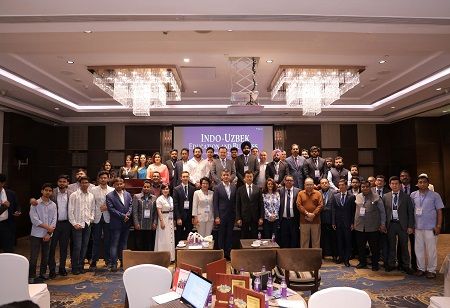- The Indo-Uzbek Education & Business Summit 2025 held in New Delhi spotlighted deepening ties, with over 10,000 Indian students now pursuing medical education in Uzbekistan.
- MoUs were signed between major Uzbek and Indian institutions to promote joint research, student exchanges, and collaborative training programs.
- Uzbekistan emerged as a rising investment hub for Indian businesses across sectors like pharma, agriculture, education, IT, and logistics.
The Indo-Uzbek Education & Business Summit 2025, organized in New Delhi, highlighted the increasing educational and economic connections between India and Uzbekistan. Ambassador Sardor Rustambaev pointed out that more than 10,000 Indian students are already studying for medical education in Uzbekistan and are the largest group of foreign students in the country.
Uzbekistan's medical universities provide six-year MD courses, including one year of internship, with 100 percent English-medium teaching. Clinical training is conducted in government hospitals, and medical licensure upon completion. Such courses have seen a rise in popularity among Indian students because of their low costs and good quality. For example, the Samarkand State Medical University, which had about 100 to 150 Indian students per year earlier, hosted over 3,000 Indian students in 2023, including over 1,000 evacuated from Ukraine.
The summit also included delegates from top Uzbek institutions like Samarkand State Medical University, Bukhara State Medical Institute, Namangan Medical Institute, Turon University, Andijan State Medical Institute, and the Journalism and Mass Communications University of Uzbekistan. Memorandums of Understanding (MoUs) were exchanged between these institutions and their Indian counterparts to establish the basis for joint research, student exchange, and joint training programs.
Apart from education, Uzbekistan is becoming an ideal investment destination for Indian businesspersons in industries like pharmaceuticals, agriculture and food processing, education and skill development, infrastructure, IT, and logistics. The strategic position of the country, along with its expanding economy and pleasant climate for investments, offers many avenues for collaborative activities between the two nations.

